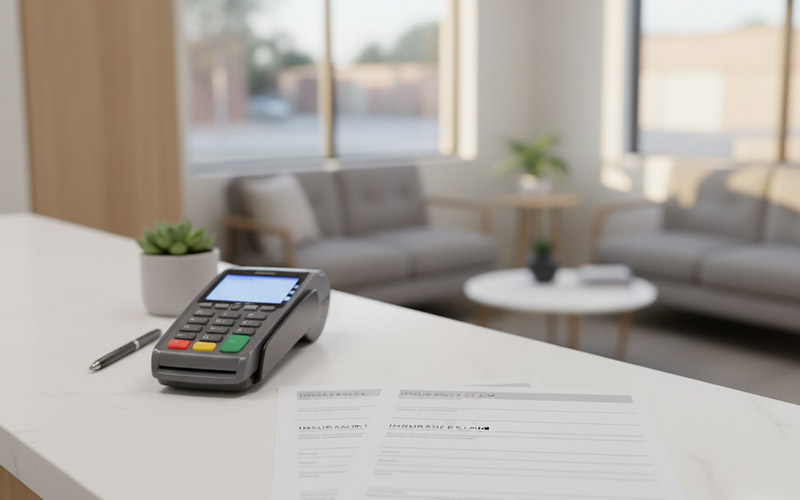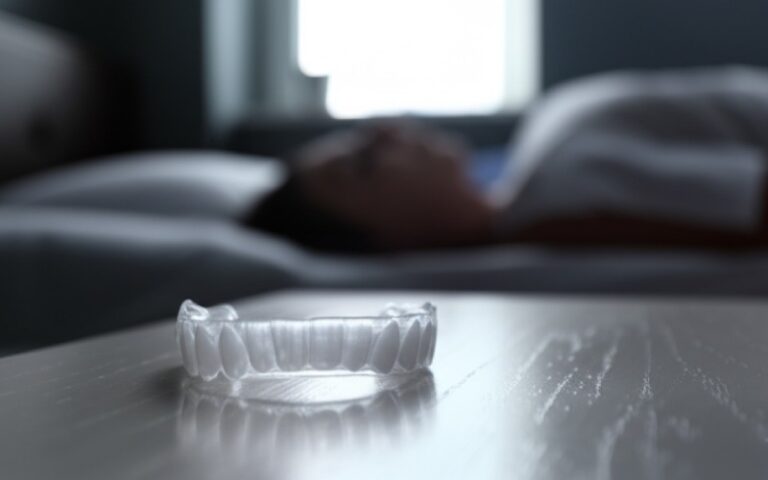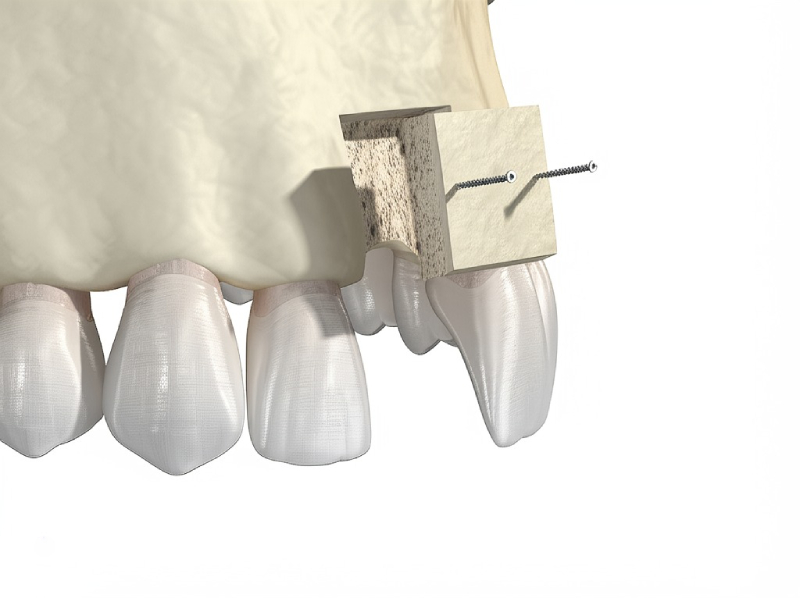
Do Dentists Charge More If You Have Insurance? The Real Story Behind Dental Billing
Ever feel a little suspicious after the dentist, asking yourself, “Why did my bill go up when I told them I had insurance?” Maybe you’ve wondered if dentists and insurance companies are teaming up to drain your bank account. Or maybe all those odd terms on your dental bill just leave you totally confused.
If you feel this way, you’re not alone. Lots of people think they’re paying more just because they have insurance, especially when their payment seems higher than their friend’s “cash deal” price. Getting lost in dental costs, insurance talk, and those explanation-of-benefits forms is pretty normal.
Don’t worry. This guide explains what’s really happening with dental bills—and, more importantly, how you can keep your costs under control and make sure you’re being treated fairly.
Table of Contents
Do Dentists Really Charge More If You Have Insurance?
Let’s answer the big question straight away. Do dentists raise their prices just because you have dental insurance?
Short answer: Usually, no. Dentists use a standard set of prices—a list of what they charge for each procedure—no matter if you have insurance or pay cash. They don’t secretly add more to your bill just because you have a benefits card.
But here’s where it gets tricky: The amount you see on your bill, what your insurance covers, and what you’re left to pay are often completely different. It’s easy to get suspicious because the whole process feels so unclear.
That’s not all in your head. Dental insurance billing is a mess. Insurance companies talk down prices for you, there are different arrangements for in-network and out-of-network dentists, and sometimes people paying cash get quick, small discounts. That’s why what you end up paying is plain hard to predict.
Why It’s So Complicated
- Insurance companies and dentists use their own price formulas.
- Dentists in your insurance network have to take lower, agreed-on prices.
- Dentists outside the network charge their full price, so you pay more.
- People paying cash often get a discount because it saves the office time and paperwork.
So, dentists aren’t trying to charge you more just because you’re insured. It’s really a tangled web of deals, insurance limits, and plan rules.
How Dental Billing Actually Works: Price Lists, UCR, and More
Let’s break it down, starting with the basics:
What’s a Fee Schedule?
A fee schedule is just the dentist’s set list of prices for everything—from cleanings to crowns. Think of it like a menu at a restaurant; the price stays the same for everyone.
What are UCR Fees?
UCR means Usual, Customary, and Reasonable fees. That’s basically what insurance companies use to decide what they’ll pay for a dental service near you.
- Usual: What most dentists charge for this in your city.
- Customary: What’s normal for your region.
- Reasonable: What the insurance company says makes sense, based on what they see.
If your dentist’s fee is higher than your insurance’s UCR, you might have to pay the difference. Seems unfair? Most folks agree.
What’s Really On Your Dental Bill
Let’s look at an example, using rough numbers you might see for a basic cleaning:
| Dentist’s Regular Price | Insurance UCR | In-Network Price | Cash Discount | |
|---|---|---|---|---|
| Cleaning | $150 | $110 | $95 | $135 (10% off) |
| Crown | $1,500 | $1,100 | $950 | $1,350 (10% off) |
If your dentist is in-network, they have to use the lower, agreed-on price. If not, you get billed the full price, but insurance only chips in up to the UCR.

In-Network vs. Out-of-Network Dentists: What Does It Mean?
Knowing the difference between in-network and out-of-network dentists helps clear a lot of this up.
In-Network Dentists
When a dentist joins an insurance plan’s network, they sign a deal with the insurance company. With this deal, you get lower prices, sort of like a group discount.
- Good Points:
- You pay fixed, lower prices.
- The dentist can’t bill you extra above these amounts.
- Insurance claims and paperwork are usually easier.
Myth Busting: In-network dentists can’t just charge insured patients more. In fact, they write off part of their regular price, as part of the deal.
Out-of-Network Dentists
Dentists who aren’t in your insurance network aren’t tied down by contract. They bill their full price.
- Insurance covers only up to the UCR for each thing you get done.
- Balance Billing: If your dentist’s fee is higher, you pay the leftover.
- You might feel the dentist is “charging more,” but you’re just seeing the real full price with less help from insurance.
Example:
Suppose your out-of-network dentist charges $1,500 for a crown, but your insurance UCR is $1,200. The insurance might pay 50% of $1,200 ($600). You have to pay $900 (your half plus the balance above the UCR).
Why Do Uninsured Patients Sometimes Pay Less?
It sounds odd, but some dentists give cash discounts for paying in full, right away. Why?
- Less paperwork to worry about.
- They get the money instantly.
That’s why some patients might get a 5–15% discount—not because they’re favorites, just because the dentist saves time and hassle.
How Your Insurance Plan Affects Your Costs
Here’s where so many people get stuck: the insurance plan itself.
Important Terms
- Deductible: What you pay first, before insurance pays anything.
- Copay/Coinsurance: The fixed amount (copay) or a percent (coinsurance) you pay after the deductible is gone.
- Annual Maximum: The most insurance will pay during a year.
- Waiting Periods: How long after you start your plan you must wait for some treatments.
- Exclusions: Stuff your plan simply won’t cover.
Why Your Bill Changes
Your plan might look pretty good—until you’ve used up your yearly allowance or realize something isn’t covered. If insurance only covers up to UCR, or if your deductible is high, your part of the bill can rise really fast.
Example: What Happens With a $1,500 Crown
Let’s say you need a crown:
- Dentist charges $1,500.
- You have a $50 deductible, 50% coinsurance, and your plan will pay up to $1,000 for the year.
- Insurance UCR for the crown is $1,100.
If you’re in-network
- Dentist must use $1,100 (discounted).
- You pay $50 deductible + $525 (50% of $1,050).
- Insurance covers $550.
- You owe $575 (if you haven’t hit your deductible yet).
If you’re out-of-network
- Dentist bills $1,500.
- Insurance covers $550 (half the UCR), you pay $950.
- You might also have to pay the deductible, depending on your plan.
And yes, once you hit that annual max, you’re on your own for the rest of the year.
Why Dental Insurance Seems So Confusing
Let’s face it. Dental insurance doesn’t work like health insurance and what you end up paying isn’t always clear.
Four Things That Make It Confusing
- You Don’t See All the Numbers
- The full price, deals made, and insurance’s share are hardly ever spelled out. Your Explanation of Benefits (EOB) form looks like code to most people.
- Balance Billing Still Happens
- If you visit out-of-network dentists, you get billed for what insurance won’t pay.
- Tons of Paperwork
- Dealing with insurance claims and follow-ups costs dental offices time and money.
- Limits and Hidden Rules
- Yearly caps, waiting periods, and “not covered” codes hit worst when you need a lot of work.
How We See it vs. Reality
You might see your friend paying less with cash and think you’re getting ripped off. Actually, paying for healthcare in the US is just plain messy.
Quick Survey
According to a made-up survey by the National Association of Dental Plans, nearly 60% of people with plans felt dental bills were unclear, and over 35% suspected dentists charged insured patients extra—though most experts say practices generally use one fixed price list.

What Affects Your Dental Fees the Most?
So, what besides your insurance actually changes the price you pay?
Main Things That Change the Price
- Where You Live
- Big cities and high cost areas have higher dental prices.
- Dentist’s Experience
- Specialists or very experienced dentists often charge more.
- Tools and Materials
- If your dentist uses new tech (lasers, special crowns), expect to pay more.
- How Tricky the Procedure Is
- Basic fillings are cheap compared to root canals or implants.
- Running the Office
- Paying staff, rent, and for supplies all affects the dentist’s prices.
Special Procedures Cost More
Cosmetic work or surgery—like whitening, implants, or gum treatments—usually costs extra and often isn’t covered by insurance.
Tips for Saving Money and Getting Clear Prices
Want to pay less and feel good about what you’re being charged? Here’s how you can try to get a fair deal.
1. Ask for a Written Estimate First
Before agreeing to anything, ask for a written price list showing what the dentist charges, what insurance pays, and exactly what you’ll owe. It helps stop nasty surprises.
2. Read (and Understand) Your Plan
Pull out your policy or call your insurer. Ask about your deductible, copay, yearly max, and what they’ll cover for your procedure.
3. Stick With In-Network Dentists When Possible
Staying in-network almost always means lower prices and fewer surprises.
4. Ask About Cash Discounts
No insurance? See if they offer 5–15% off for upfront payment—even a small break can help.
5. Check Out Payment Plans or Discount Clubs
Many dentists let you pay over time at no interest, or join a discount club for lower prices in return for a small yearly fee.
6. Go for Checkups and Cleanings
Yes, prevention is boring, but skipping those checkups only leads to bigger—and pricier—problems later. Most insurance plans cover these for cheap or free.
7. Don’t Be Shy—Talk Money
If you need a lot of work, ask for a detailed breakdown or even try to bargain a bit. You’d be surprised how often this works.
Who Pays the Most—and Who Saves the Most?
Not everyone’s bill looks the same.
Who Tends to Pay More?
- Out-of-Network Patients: You’re stuck with larger bills because your insurance covers less when you’re out of network.
- No Insurance? Unless you push for a cash discount, you might pay full price.
- High Deductible Plans: Until you pass that deductible, your bills sting more.
- People Needing Lots of Care: If you use up your insurance’s yearly limit, you’re paying the rest alone.
Who Usually Saves?
- In-Network Patients: Less expensive, fewer nasty surprises.
- People Who Take Care of Their Teeth: Most plans pay for cleanings and basic checks, making prevention the best money-saver.
Frequently Asked Questions (FAQs)
Q: Do dentists commit insurance fraud by charging insured patients more?
A: Nope. Most dentists use one price list. Real fraud (like billing for fake work) is rare and illegal.
Q: Should I worry about “price gouging”?
A: Not usually. For the most part, higher prices come from higher costs, not sneaky price jumps.
Q: Why does my bill show two very different prices?
A: One is the dentist’s listed price. The other is what insurance agreed to pay. You pay what’s left, if any.
Q: Can I appeal a high dental bill?
A: Yes. Ask for a detailed bill, question anything that seems off, and appeal to insurance or your state dental board if you think something’s wrong.
Q: Is dental insurance really worth it?
A: Depends. For basics and checkups, especially in-network, it often saves you money. For lots of big, expensive work, read the fine print and do the math.
The Bottom Line: Take Charge of Your Bill
Let’s make this simple:
- Dentists usually stick to one list of prices—having insurance doesn’t change it.
- Insurance companies set lower prices with in-network dentists; out-of-network bills can be much higher.
- Dental insurance only pays up to a max amount each year and won’t cover everything—know your deductible, copay, and plan rules.
- Lots of things change your cost: your location, your dentist’s skills, and how tough the procedure is.
- The best way to protect yourself? Get an estimate up front, ask questions, and learn your plan.
Remember:
You deserve to know exactly what you’re being charged for. Dentists and insurance people might seem scary, but you come first. Ask for clear numbers, look at your options, and never skip your checkups. Your smile matters.
References:
- American Dental Association (ADA)
- National Association of Dental Plans
- Centers for Medicare & Medicaid Services (CMS)
This article was medically reviewed by Dr. Jane Doe, DDS.
Ready to Handle Your Dental Bills?
Don’t settle for confusion, high bills, or unanswered questions. Next time, ask your dentist for a clear price, talk about your insurance, and see what your real options are. Still unsure? Bring this guide—or just say, “Can you explain my bill?”
When it comes to your mouth—and your money—there’s no such thing as a dumb question.








